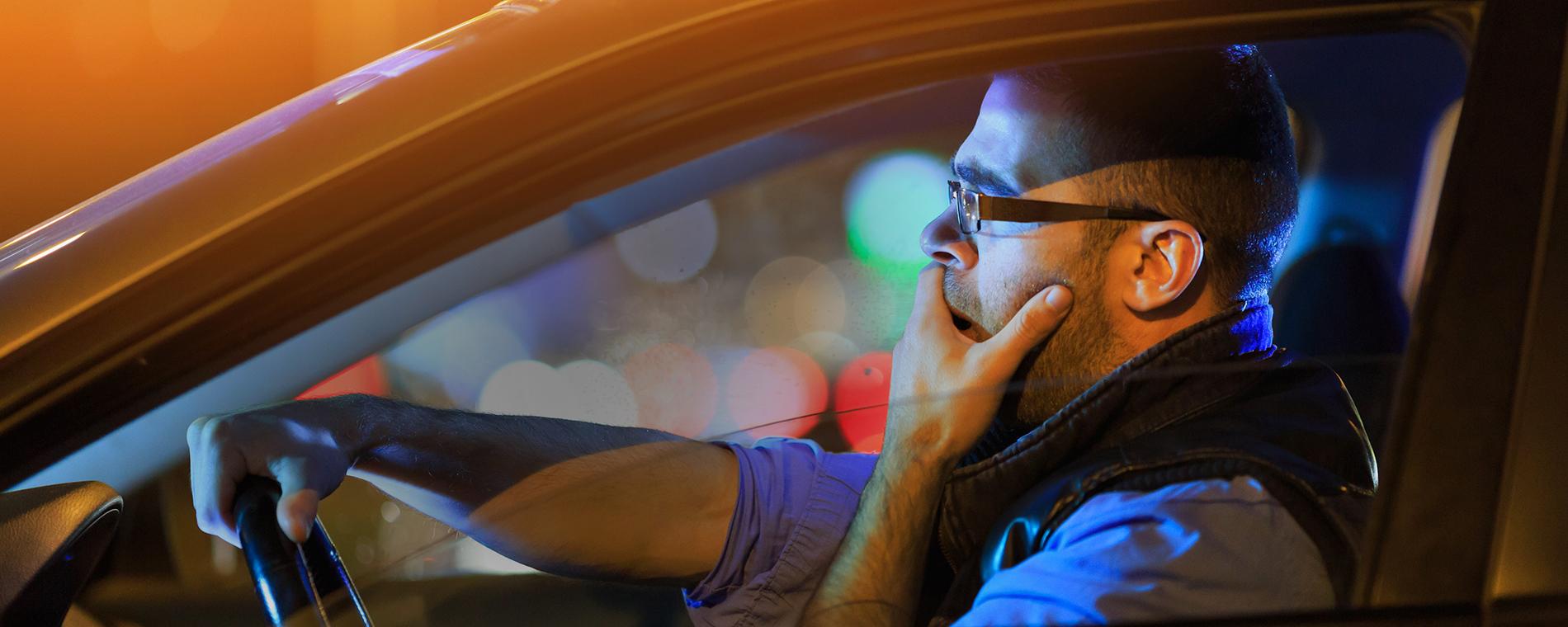The upcoming holidays are prime time for car accidents – especially when the hectic pace makes us cut back on sleep as we try to juggle family, work, and social obligations. That means we may not be getting a minimum of seven hours of sleep each night and are accumulating sleep debt.
It’s also prime cold and flu season, and the medication we take to control symptoms may cause drowsiness. Altogether, we’re at high risk for drowsy driving. That’s bad news. A fatigued driver can be as impaired as one driving under the influence: a drowsy driver was found to be involved in about 21% of all fatal accidents.
How do you know you’re too tired to drive?
Having any of these seven indicators can mean you’re too tired to drive safely:
- Blinking often or longer and/or having difficulty keeping your eyes open/focused.
- Head nodding or difficulty keeping your head up.
- Frequent yawning.
- Blanking out about the last few miles you drove.
- Consistently finding you are too close to vehicles in front of you.
- Missing road signs, exits, or turn-offs.
- Drifting into another lane, onto the “rumble strip,” or onto the shoulder of the road.
Tips from the experts
The American Academy of Sleep Medicine and the National Sleep Foundation offer the following tips to reduce your likelihood of being in an accident.
- Don’t skimp on sleep. Most adults need between seven and nine hours daily to remain alert. Never drive if you’ve been awake for 24 hours or more. There is simply no way to drive safely at that point.
- Take breaks on long trips – about every two hours – and drive with someone who can help you stay awake and focused and share the driving if necessary.
- Stay away from alcohol. It’s initially a sedative – yet another reason it’s a bad idea to drink even a small amount before you drive. Even if you drink the day before, alcohol can still make you drowsy because it can cause insomnia by increasing the level of epinephrine in your body a few hours after you drink.
- Be aware of the effect of over-the-counter and prescription medications – both can cause extreme drowsiness.
- Consider drinking caffeine about a half hour before you drive – it takes at least that long to be effective. But be aware that the effects don’t last very long.
- Pull over for a short nap or spend the night in a motel if you are fatigued.
We wish you a safe and happy holiday season. Tip the odds in your favor by making sure you and your loved ones know the dangers and signs of drowsy driving.
Contact us
Our Risk Coaches are licensed insurance professionals who are trained to look at coverage from your perspective. They’re glad to help you navigate the often-perplexing world of insurance coverage. Contact your local Risk Coach™ professional, or call us at 800.342.5342 Monday through Friday, from 8:00 a.m. to 8:00 p.m. ET.



